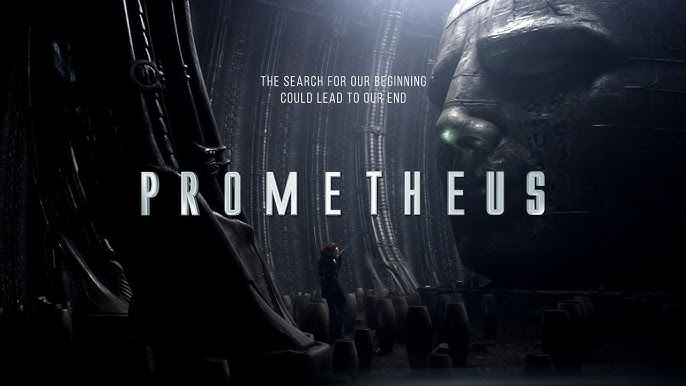🎬 Prometheus (2012)

🎬 Prometheus (2012): A Sci-Fi Odyssey Into the Origins of Humanity
Prometheus (2012), directed by Ridley Scott, is a stunning and thought-provoking sci-fi thriller that explores the mysteries of human existence and the origins of life itself. Serving as both a prequel to Alien (1979) and a standalone film, Prometheus delves into themes of creation, the search for meaning, and the dangers of hubris in the pursuit of knowledge.

Set in the late 21st century, the film follows the crew of the starship Prometheus, which is dispatched on a mission to a distant moon in the hopes of uncovering the origins of humanity. The journey is inspired by the discovery of ancient cave paintings on Earth that depict a star map, leading archaeologists Elizabeth Shaw (Noomi Rapace) and Charlie Holloway (Logan Marshall-Green) to believe that an extraterrestrial race, known as the Engineers, may have played a role in the creation of mankind. They seek to find these Engineers in hopes of understanding their role in the origins of life and the universe.
Upon arriving on the distant moon, the crew discovers the remnants of a long-abandoned alien structure, which holds terrifying secrets that could threaten not just their lives, but the future of humanity itself. As they begin to unravel the mysteries of the Engineers, they encounter a deadly force that challenges their understanding of life, death, and creation. The crew’s exploration of the unknown becomes a race for survival as they confront the horrifying truths about their existence and the destructive consequences of their pursuit of knowledge.
At its core, Prometheus is a film about creation and the search for purpose. The narrative is filled with philosophical questions regarding humanity’s origins, the nature of life, and the desire for immortality. The film grapples with the concept of God, as the Engineers are seen as god-like figures who created humans. The plot is designed to make the audience question whether the act of creation, whether by humans or gods, is inherently dangerous, and if the pursuit of answers to existential questions can lead to unforeseen horrors.
Ridley Scott’s direction brings an atmospheric and eerie quality to the film. The expansive, alien landscapes and the hauntingly beautiful visuals create an otherworldly atmosphere that draws the audience into the mystery of the Engineers. The film’s use of CGI and practical effects creates a striking balance between realism and the surreal, making the alien technology and creatures both awe-inspiring and terrifying.
The film also features stunning performances, with Noomi Rapace delivering a standout portrayal of Elizabeth Shaw. Her character’s unwavering belief in faith and hope amidst the horror she faces offers a stark contrast to the film’s darker themes. Michael Fassbender’s portrayal of the synthetic android David is equally remarkable. His calm demeanor, curiosity, and ambiguous motives make him one of the most intriguing and unsettling characters in the film. Fassbender’s performance adds a layer of complexity to the film, making David both a figure of fascination and a potential threat.

Prometheus raises significant ethical and moral questions, particularly regarding the pursuit of knowledge and the unintended consequences of scientific discovery. The film explores the limits of human understanding and the potential dangers of seeking answers to questions that may be better left unasked. It also explores the idea of playing god and the consequences of trying to control creation, as the Engineers themselves are revealed to have created life on Earth, only to later seek to destroy it.
The film’s pacing, which slowly builds tension as the crew unravels the mysteries of the Engineers, keeps the audience on the edge of their seats. The suspense is palpable, especially as the crew encounters horrifying alien organisms and grapples with the deadly consequences of their discoveries. The film’s action sequences, though not as intense as those in Alien, are thrilling and add to the sense of dread and danger that pervades the film.

While Prometheus did not receive universal praise upon release, it remains a highly influential and intellectually engaging entry into the sci-fi genre. The film’s stunning visuals, philosophical depth, and exploration of the origins of life and humanity make it a unique and thought-provoking experience. It sets the stage for its sequel, Alien: Covenant (2017), which continues the exploration of the themes introduced in Prometheus while bringing the story closer to the Alien universe.
Ultimately, Prometheus is a film that challenges its audience to think deeply about humanity’s place in the universe, the consequences of seeking knowledge, and the dangers of creation. It’s a chilling reminder that the answers to life’s greatest questions may not always lead to salvation, but to an unknown terror lurking just beyond the stars.











